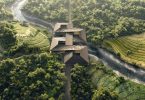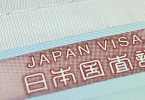South Sudan’s fledgling tourism industry – most travelers to Juba and beyond are traders, business men, NGO personnel and political ‘tourists’ but only a few hundred thought to have come to South Sudan for safaris – has been described as “dead in the Nile Waters” by a regular visitor to Juba, when discussing the impact of the current fighting between factions of the once united ruling party SPLM.
The tourism industry, inbound that is, had already taken heavy blows when militias attacked the park headquarters of the Boma National Park and destroyed not just crucial park infrastructure and a training facility for park rangers and wardens, but also killed and drove away many of the staff based in a park, from where one of the great migrations of our days begins in a yearly cycle of up to two million animals trekking to the distant Nile before returning into the park and the Sudd area.
Poor roads, often impassable for weeks during the rainy seasons, have added to the woes of the tourism sector, making the supply of camps nearly impossible, with no relief in sight as the construction of new roads was last year delayed by lack of funds due to the external crisis with Khartoum Sudan, when oil exports were halted, and the present state of civil war has only added to such projects grinding to a complete and utter halt.
South Sudan, on independence, was full of promise as the last great frontier for expeditions and safari tourism, but never really took off, in part as a result of hair brained regulations which even saw visitors arrested for not having a license to take photographs with their cameras. Red tape, poor services at Juba International Airport and the now confirmed perception that the country simply was not stable enough to support a fledgling tourism sector, made sure that only a few hardened adventurers made trips to the country, and those who did came back with rave reviews of their safari experiences. Such positive impressions though have now all but evaporated as inbound traffic has greatly reduced and proper tourists now shun the country, most for lack of available travel insurance as South Sudan has been declared a ‘hot zone’ and off limits destination.
Diplomatic efforts continue to maintain talks between the protagonists in Addis Ababa but so does the fighting continue too in many parts of South Sudan, for control of the oil fields, key infrastructure like bridges and roads as well as airfields and airports, and no answers are forthcoming as to when the conflict can eventually be brought to an end. Only once that is accomplished, will South Sudan’s tourism industry have time to sit down and take stock and find new strategies to rekindle interest in a destination, which could potentially provide some of the most exciting safaris anywhere in Africa.






















